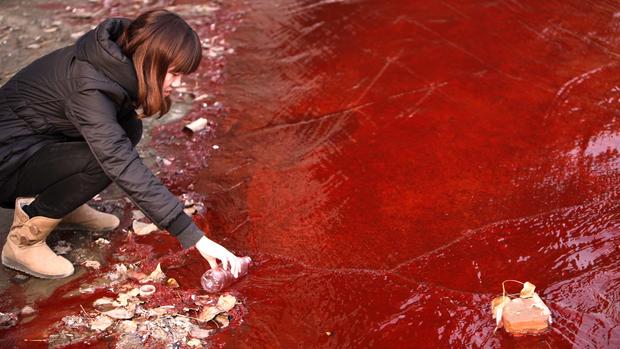Air pollution slashing 10 years off life expectancy in Delhi, the world’s most polluted city, study says
New Delhi — Air pollution in major South Asian cities has shortened the life expectancy of people living there by up to 10 years, despite COVID-19 lockdowns slowing economic activities since 2020, a new study by a U.S. research group says. New Delhi, India’s capital, has been ranked the world’s most polluted city, where people have lost almost 10 years of their lives to air pollution, according to the study commissioned by the Energy Policy Institute (EPIC) at the University of Chicago.
Air pollution has shortened life expectancy in New Delhi by up to 10 years, and across the country by five years, the study says. The study ranked Bangladesh as the world’s most polluted country overall, followed by India, Nepal, and Pakistan.
People living in Bangladesh’s capital Dhaka are losing nearly nine years of their lives to air pollution, while the national average stands at 6.9 years, according to the research.
The “Air Quality Life Index” study by EPIC translates particulate air pollution into real-world impact on life expectancy by calculating how long people would live in a given population if the World Health Organization (WHO) guideline for annual average particulate pollution of 5 μg/m³ was met.
Levels of the most dangerous air pollution — fine particulate matter known as PM2.5 — in Delhi are more than 10 times the WHO’s safe limit. PM2.5 particles can penetrate and settle deep in the lungs, causing severe health issues including respiratory and heart diseases.
The study notes that more than 500 million people who live in northern India are “on track” to lose 7.6 years of their lives, on average, if the high pollution levels are not tackled.
“The report is definitely alarming, although such studies have come out in the past, too,” Professor Sachchida Nand Tripathi, an Indian scientist who researches air quality, told CBS News.
About 44% of the global pollution since 2013 has come from India, according to the research by EPIC. The country has witnessed a huge spike in air pollution over the last few decades due to rapid industrialization and a heavy reliance on fossil fuels. The number of vehicles on the country’s roads has increased about four-fold, the report notes. India is trying hard to switch to cleaner fuels, but experts have told CBS News that it’s not going to be easy to quit the national coal habit.
“It’s going to take about 15 years for us to see any tangible reduction in the particulate matter… significant reduction could take two to four decades,” Tripathi told CBS News.
He’s a member of the Indian government’s National Clean Air Programme (NCAP) panel, which is working on a plan to reduce PM2.5 in 122 cities by 20–30% by 2024, compared to 2017 levels.
Air pollution in Nepal, the third most polluted country, and in Pakistan, the fourth most polluted country, shortened life expectancy there by 4.1 years and 3.8 years respectively, according to the EPIC study. But some of the districts in the two countries — including Lahore and Peshawar in Pakistan — are as bad as Bangladesh, where peoples’ lives are being shortened by almost seven years according to the research.
The study indicates that more than a billion people living in South Asia may already have have suffered serious health impacts.
Tripathi said “rapid economic growth, high population density, and a unique topography that creates a peculiar weather effect” were all likely factors contributing to the high levels of air pollution across India, Pakistan, Bangladesh, and Nepal.
The study says that, globally, air pollution is reducing life expectancy by 2.2 years. That’s an impact on par with smoking, and more than three times that of alcohol use and unsafe water.
“It would be a global emergency if Martians came to Earth and sprayed a substance that caused the average person on the planet to lose more than two years of life expectancy,” said Michael Greenstone, an economics professor who co-created the EPIC air pollution life expectancy index. “This is similar to the situation that prevails in many parts of the world, except we are spraying the substance, not some invaders from outer space.”
The study says air pollution has reduced in both the U.S. and Europe, but the majority of people in both still live in areas that fail to meet the standards set by the WHO.
For all the latest World News Click Here
For the latest news and updates, follow us on Google News.


